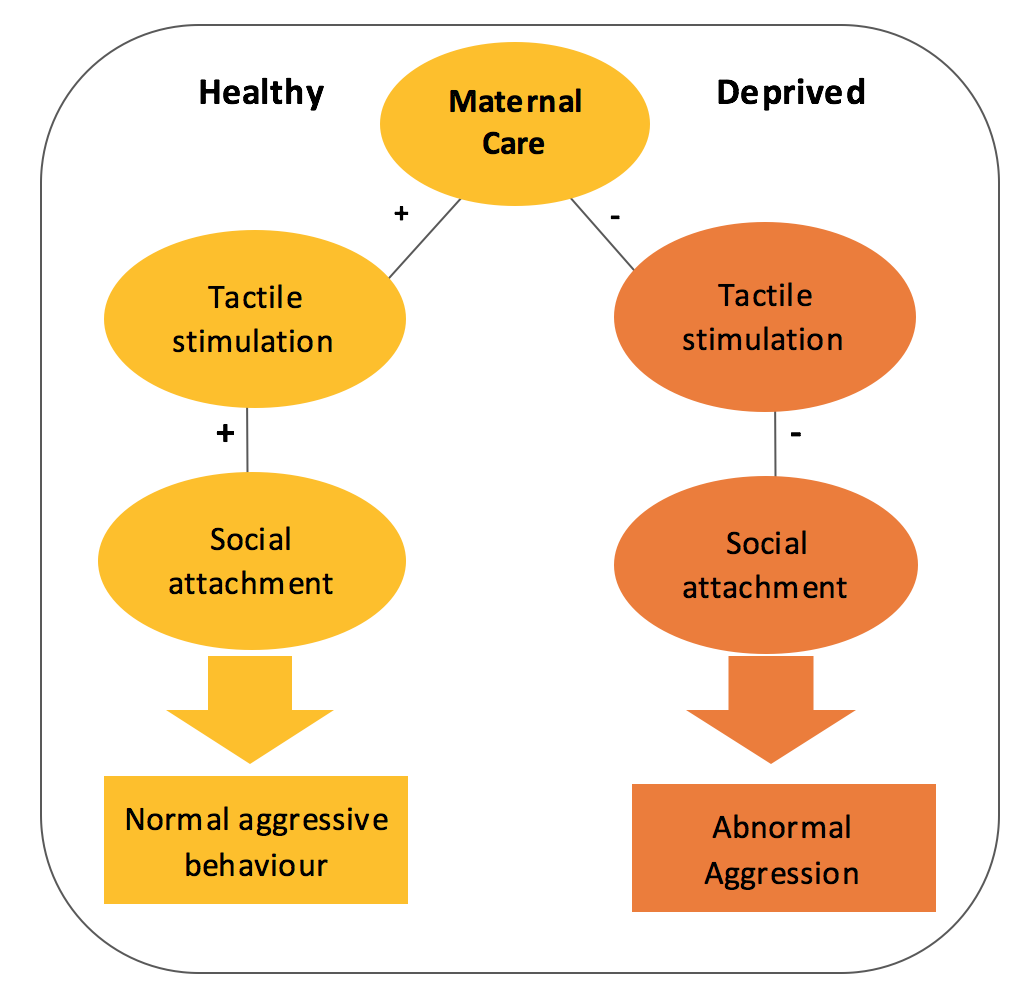|
Size: 2050
Comment:
|
Size: 2052
Comment:
|
| Deletions are marked like this. | Additions are marked like this. |
| Line 15: | Line 15: |
| ||<tablebgcolor="#eeeeee" tablestyle="float:center;font-size:0.85em;margin:0 0 0 0;"style="padding:0.5em; ;text-align:center"> {{attachment:TS.png|pop-up text}} <<BR>>'''Fig 1.'''<<BR>>''Tactile Stimulation'' || | ||<tablebgcolor="#eeeeee" tablestyle="float:center;font-size:0.85em;margin:0 0 0 0; "style="padding:0.5em; ;text-align:center"> {{attachment:TS.png|pop-up text}} <<BR>>'''Fig 1.'''<<BR>>''Tactile Stimulation'' || |
Physiological And Behavioural Effects Of The Early Social Isolation
Social isolation is the experience of physically being alone and in solitude. It may even just be a perception; someone may feel isolated despite being surrounded by people. Short term solitude is not regarded as social isolation. Early social isolation can impede the behaviour and physiology of many types of species.
As science continues to evolve, social isolation is being given more importance. In fact, Martha McClintock, a university of Chicago psychology professor, explains how the increase in morbidity with social isolation is equal to that of cigarette smoking. Experiments and research are continuously being made on both humans and animals. Animal-based research allows us to make new discoveries without the risk of causing permanent damage to humans.
Social isolation may affect both the young and elderly, and has different behavioural, physiological and hormonal effects on the differently aged individuals. In this text we will focus on the effects of social isolation on early development, particularly during the critical period. This is a maturation stage during which the nervous system is extremely sensitive to certain environmental stimuli.
Main Effects
It has been proved that disorders in mother-infant relationships and early social isolation contribute to increased aggression in adult life. Decreased social stimulation in young may therefore cause stress and promote aggressive behaviour.
The strong mother-infant relationship seen in most species contains high amounts of tactile stimulation, and is important for nervous system and behavioural development.
|
Apart from behavioural effects, several physiological ones are also seen.

